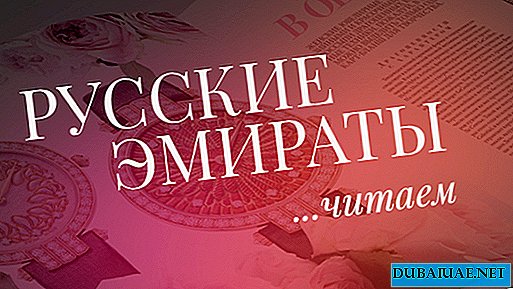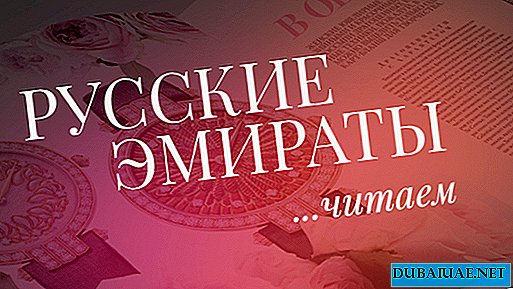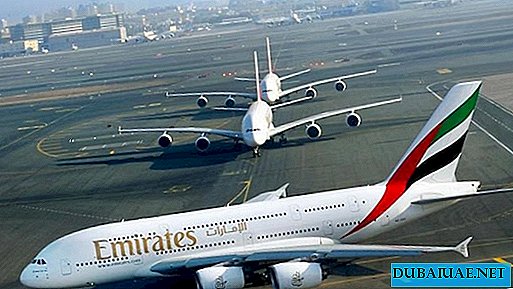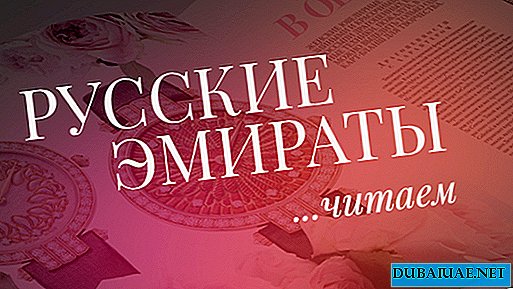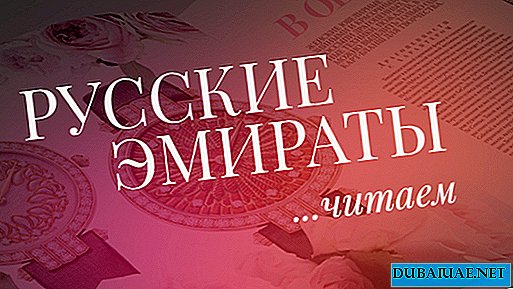 The question is not clear? Anyone who has ever studied English at least once in his life probably knows about the existence of its British and American versions. Also, a separate line of experts highlight the Indian dialect of English, which is spoken by the inhabitants of the Subcontinet. But there is hardly any other place in the world like Dubai, where you can hear so many variations on the theme of "great and mighty" English. So, the popular term Dinglish appeared here over time, which in translation means Dubai English (Dubai English).
The question is not clear? Anyone who has ever studied English at least once in his life probably knows about the existence of its British and American versions. Also, a separate line of experts highlight the Indian dialect of English, which is spoken by the inhabitants of the Subcontinet. But there is hardly any other place in the world like Dubai, where you can hear so many variations on the theme of "great and mighty" English. So, the popular term Dinglish appeared here over time, which in translation means Dubai English (Dubai English).
What is so characteristic of the English reprimand of the Dubai? Even recently arrived repatriates from different parts of the world generously spice up their English speech with common Arabic words “yyani”, “yakhi” and “yalla” (something like Russian parasitic words: “like,” “type,” “drove "), and also answer the phone with the phrase“ tell me ”. Another refinement that cleverly corrected all cultural and linguistic boundaries - the expression “today itself” is on a par with such a masterpiece as “VERY good morning” in response to your usual greeting “Good morning”.
Perhaps the most inventive in terms of writing new speech turns can be called immigrants from India, everywhere, in place and out of place, inserting the word “only” into sentences. For example, the paraphrase “bukra only” in the Emirates does not shock anyone at all, since everyone knows very well what it means “only tomorrow” (where “bukra” is really “tomorrow”, though in Arabic). Or, introducing himself and reporting where he comes from, the Indian can say “I am from Kerala only,” shaking his head to the beat. Yes, if you were accidentally taken to the store for a packet of flour (bake pancakes), then only on very expensive packs from European countries you will find the familiar English “flour”. More economical versions of the same product are simply called “all purpose maida” (which roughly means “flour suitable for any baking”, only the word “maida” is from India, and “all purpose” is from Misty Albion) or the completely incomprehensible “chapatti aata ”(also flour, only gray and especially for chapatti - Indian unleavened cakes).
Another “language creator" is of course Lebanese, who for the most part work, by the way, in the advertising and publishing business, broadcasting companies and on television, as well as in major PR agencies. They own the authorship of such phrases - “merci ktir” (“merci” - French thank you, “ktir” - Arabic. Big) and “double zero hero” (admiration for the person who got on the pages of Hot 100). Thanks to these active guys, such a stable expression as “media city cedar effect” appeared in Dubai (characterizing the tendency of the leaders of media companies to hire relatives; “cedar” - the English cedar, is a symbol of Lebanon and decorates the state flag of the country). Well, how can one not recall such brilliant examples of banner advertising invented by the same authors as “Fi Masafi?” (Where “fi” is “eat” in Arabic, and “Masafi” is the local brand of drinking water and juice) or “Dandruff Khalas” (something like “Goodbye, dandruff!” in an advertisement for shampoo, where “khalas” is Arabic. end, that's enough).
Of course, the British, who advocated the purity of their native language, thought up, sitting in bars and restaurants, their own, relating to Dubai, idioms. How do you like: “eau de taxi” (similar to “eau de perfume” means a characteristic smell associated with Dubai public transport), “gulf bore syndrome” (inability to talk about anything other than real estate, traffic jams and “cultural the wilderness of “this region) or“ BR time ”is when a rather conditional meeting time is assigned -“ Let's say eight o'clock BR time ”(where“ BR ”are the initial letters from Beach Road)?
Our guys also do not remain in debt and contribute to the formation of the Dubai dialect of English. You can’t even say that almost any foreigner, having met a Russian, will smartly blur a set of “hello”, “how are you” and “good”. It is very possible that in the Dinglish Dictionary, if one is ever to be released, along with the usual “hey” and “hello”, there will be a “privet”. In addition, ours are distinguished by their remarkable ability to fasten Russian endings to any English word. So there are “roundabouts” (from the English “roundabout” - roundabout), “watchmen” (from the English “watchman” - watchman, watchman), “springs” (variant of the name of the Springs microdistrict), “buildings” (from the English . "Building" - a building) or "real estate" (if a compatriot suddenly works in a real estate company - English real estate). Our unfortunate fellow citizens (usually young ladies) who work in hotels or shops and are forced to live in communal apartments with their neighbors (in the so-called “sharing accommodation”) can be easily attributed authorship of phrases such as “I live on a sharing” or “ in my accommodation. "
Russified versions of the English terms “booking” (English ordering, purchasing tickets) and “reservation” (English booking, reservation) are widely used by many representatives of Dubai travel agencies, only for some reason no one is trying to translate the meaning of the first word, and therefore the client they say "your booking is ready, come," and the poor "reservation" in the mouth of travel industry professionals turns into a "reservation" (where, according to sensible dictionaries, the US authorities referred the American Indians). Moscow tour operators have stepped even further. Despite many years of experience working with Dubai as a popular tourist destination, many more of them interpret the name of the city as “Dubai” in their advertising leaflets about the UAE or, even cooler, talk about hotels in “Dubai”. And I want to laugh, and cry. Guys! Dubai is still alone. Not much. And it is unlikely that they will be, so the plural is canceled.
Well, how can I not mention the exclamations “Come here, boss” so sweet to the Russian heart, addressed to the waiter at a street diner in Deira. Or “my friend”, addressed to a complete stranger, whom you see for the first and last time in your life: a seller in a supermarket, a taxi driver, well ... Well, there are still good people in the world.
Yes, if a Russian to the bone marrow suddenly needs to share with others a complete absence of problems (which is extremely rare, usually the opposite), then he will certainly express this with the Arabic phrase “mafi moushkila”, which means “no problem”. And the usual Ukrainian or South Russian reprimand of the question: "Shaw?" somehow completely imperceptibly transformed into "Shu?" (“Shu” is Arabic. That). And the most remarkable thing is that most often these words and expressions can be heard in everyday communication, among Russians, Europeans or Americans, speaking among themselves ... correctly, in English.
You can give examples for a long time and quote the most successful phrases adopted in Dubai society. One thing is clear from all that has been said, Dubai - it is such a terrific mix and interpenetration of cultures, traditions and languages that in a very short time it will be difficult to understand where this or that word was borrowed from. It’s just that everyone will begin to understand each other without translators, and it may become during the construction of the world's tallest Dubai Tower (as it once was during the construction of the Tower of Babel) a new international language of communication will be born. And they will call him Dinglish. And smart people will publish a bunch of dictionaries, and ordinary people will answer the question: "Do you speak Diglish?" will answer: "Walla, I do only". And everyone will be fine. And people will live in peace and harmony.
Elena Olkhovskaya + Irina Ivanova
(co-creation only)



